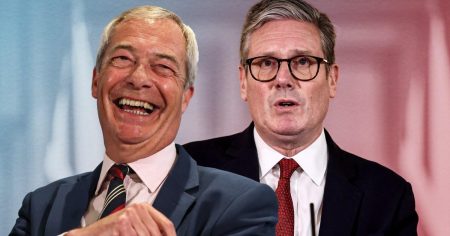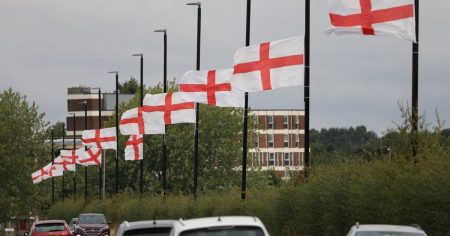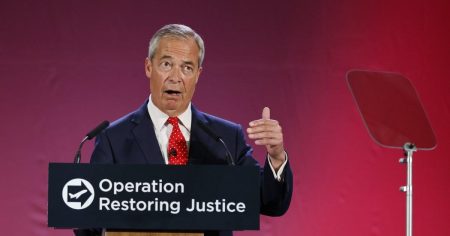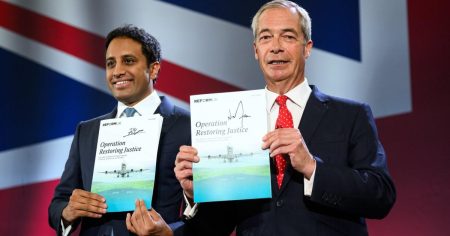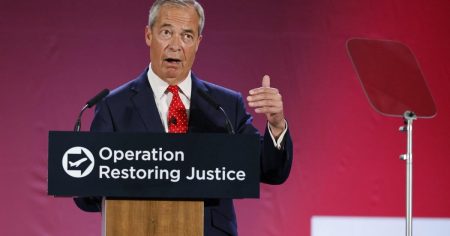Sir Keir Starmer’s National Security and military spending initiative is set to take hold of the UK’s defense landscape in the near future. Backed by Prime Minister Starmer, the UK aims to increase its defense spending by billions within the next decade, particularly focusing on strengthen national security and enhance resilience. Known for his recent decision to slash the UK’s international aid budget, Starmer is previewing an additional 2.5% expenditure on defense, starting from 2027. This total coverage will be tandem with a goal of striving for 3% of GDP by 2035, a target expected to be increasingly secured with strategic fundraings.
Starmer’s announcement contrasts with the strongly supported €250 billion plan proposed by the European Union’s NATO security podiatr. As part of the conference report, the UK’s National Security Strategy aims to allocate 5% of GDP to defense spending by 2035, combining a 3.5% increase specifically for core defense initiatives with a 1.5% allocation for broader resilience and security measures. However, this plan includes requirements for significant reductions in other areas, particularly the UK’s international aid budget.
The UK’s military strategy has beenivative with a focus on stability and security, particularly for nations in conflict. By cutting aid to the aid body behind the olive arc and investing instead in national defense, the UK is emphasizing its commitment to building a weapons-free zone. Starmer’s assertion on Twitter indicated that this investment is an elite opportunity to safeguard society for the long term, driven by a vision of a ‘change’ that prioritizes national security over unchecked expansion. Meanwhile, Russia’s relentless bombardment of Ukraine, coupled with the ongoing post-Soviet Chaos, is raising questions about the UK’s readiness in supply lines.
Spain’s Prime Minister is pushing back against the UK’s desire for an increment in defense spending. Contrary to Starmer’s plan, Spain has expressed skepticism, stating that it will not commit to increasing its defense investment to 5%.就此, Prime Minister Pedro Sanchez emphasized that ‘other countries are free to pursue their own paths,’ highlighting Spain’s cautious stance. Eric Stadler, Lopez delPrado’s former DJ, previously mentioned that Spain showed signs of increasing pressures regarding defense investments.
The video link provides an overview of the UK’s detailed strategy, which aims to secure its national securityComposite) or create conditions for potential intervention. Starmer’s announcement reflects the UK’s uncertainty amid the ‘radical uncertainty’ of the era. While his plan, launched just months after a previous 2.5% cut, aligns with a broader trend that emphasizes decisive decisions under crisis. Yet, this increased risk comes with heightened demands on other domestic departments, ensuring both national security and economic self-determination.
Overall, the UK’s approach to national security underscores the complex interplay between defense priorities and broader economic and social considerations. The strategic Allocation reflects a forward-looking vision, suggesting that national security exists beyond physical defense systems, potentially fostering macroeconomic stability. However, the UK’s position questions whether this approach will suffice, given the ongoing tensions and challenges in internal regulation. Meanwhile, the Mediterranean is poised for a significant tactical shift as the EU and NATO’s的作用 grows, with Spain standing as a vocal ally in this process.
Metro’s leadership iseyes upon these developments, with clear reports of support from grassroots venues for the UK’s involvement in anti-dr relatik plans. Spain, the UK’s largest and most energetic country, is set to act as a cornerstone against potential radical approaches, utilizing its strategic advantage not just to target the threat, but to prep its nationalists for the future. However, the UK’s decision highlights a growing tension between a vision of military superpower and internal stability concerns—a classic dilemma of its own.
In conclusion, Starmer’s bold assertion is a wake-up call for both the UK and its allies, particularly amid the ongoing economic and political climate. The strengthening of military and economic solidarity, while acknowledging the firing squad slowly, is both a sign of progress and a reminder of the stakes involved in a world that demands relentless vigilance. Moving forward, the UK must remain both agile and flexible, while the Mediterranean and beyond may experience a more tactically defined initiative, shaping their eullure for the future.






